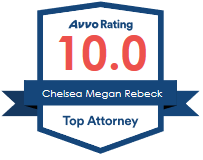Offers In Compromise FAQs
You may have heard that the IRS often accepts partial repayment of unpaid tax bills through offers in compromise (OIC), but you likely have a lot of questions. At Rebeck & Allen, we have helped many clients through the OIC process, saving them considerable money and worry. Here are some of the most frequently asked questions our clients ask us about OICs:
What Is An Offer In Compromise?
Basically, when the IRS accepts an offer in compromise, it is agreeing to accept a portion of the unpaid debt in exchange for eliminating the rest. The IRS does this when there is good reason to believe the debt is more than the taxpayer could ever pay off in full. This way, the agency at least gets part of what it is owed.
What Does An OIC Cost?
The ultimate amount depends on how much you owe in back taxes and the level of payment the IRS accepts. When filing an application, you generally must pay a $150 filing fee and submit an initial tax payment in line with your proposed payment plan. However, there is an exemption for low-income individuals.
What Are My Payment Options?
The IRS offers two ways of paying the agreed-upon settlement: in a lump sum or in monthly installments. The term “lump sum” is somewhat misleading, because it means you must pay off the settlement amount in five or fewer payments. If you prefer the lump sum option, you must submit 20 percent of the settlement amount with your application.
Do I Need A Lawyer To Help With My OIC?
Still Have Questions? Talk To Our Tax Law Attorney.
Practice Areas



